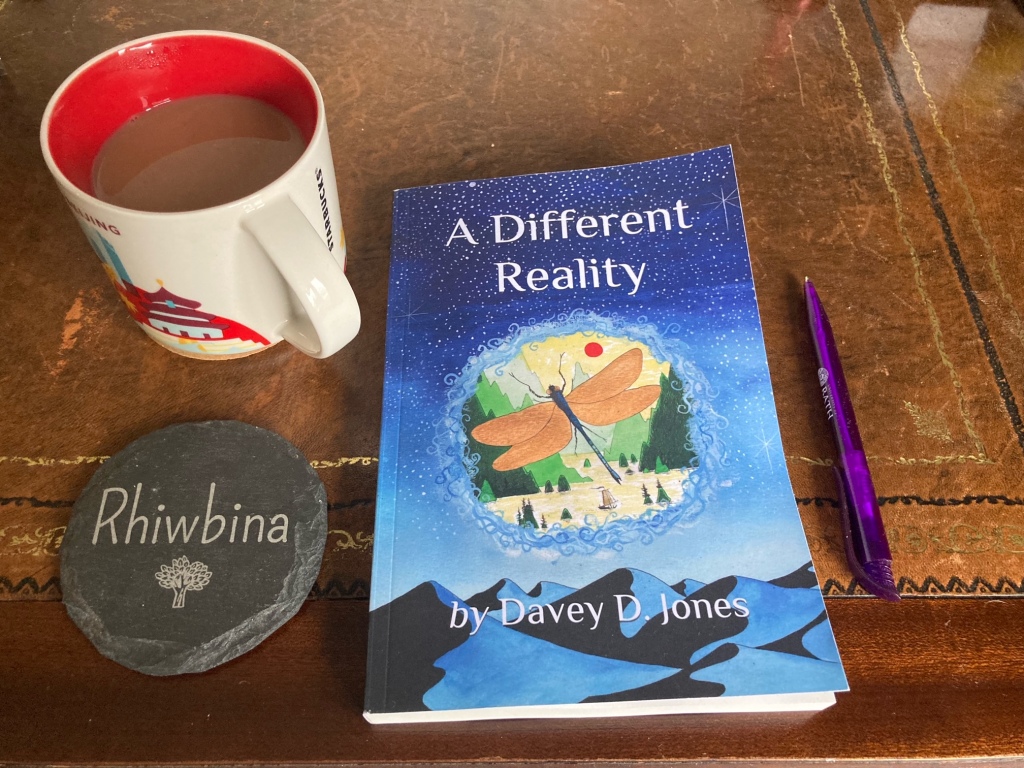How do you go about writing your first novel?
First-time author Davey D. Jones, whose debut A Different Reality is gaining rave reviews, kindly shared his thoughts about the writing process and self-publishing.
“I remember Richard Osman saying on the quiz show Pointless, before he released his hugely successful debut novel, he’d heard that to be a good writer you need to read a lot. I love reading – I’m like a chain smoker – I have to have another fix/book ready before the one in my hand finishes. So reading a lot not only gives you joy but also an idea of plot structure, pace, how characters work off each other, and so on.
“There are some excellent guides on how to write a novel. Stephen King’s On Writing: A Memoir of the Craft gives a fantastic insight into the process. The screenwriter Michael Hauge has written some very helpful guides on how to structure a story and make it gripping. Their work has provided me with a template to work with. Bear in mind that some authors have questioned some of their assertions such as Stephen King’s suggestion that we should never use adverbs – there always seems to be debate about what’s good practice and what’s not.
“It’s often recommended that you write about something you have particular knowledge of. This makes sense to me, but I wouldn’t restrict myself to my own experiences – J.K. Rowling never went to Hogwarts School of Witchcraft and Wizardry, as far as I’m aware.
“Once you have a plot in mind you can start creating the characters. A piece of advice I’ve read on a forum which I think is very important to consider when creating a character is that no one is perfect – we are flawed human beings and so even the ‘goody’ in your story should have some idiosyncrasies. The remarkable Ruth Jones, co-writer of [TV sitcom] Gavin and Stacey, apparently said that she gets lots of ideas for her characters from people-watching whilst just riding on the bus around Cardiff.
“A top tip from Stephen King is to just write – find a time which is good for you and then get your story onto paper/Word. Even if you only set aside 30 minutes a day for this, that’s a step closer to completing your novel. You might not feel like you can write anything new, in which case, read through and edit your previous work or develop your characters.
“Show, don’t tell. The pace of your novel can be affected by too much description, so show the reader what is happening through actions or the characters’ thoughts and feelings. You do need to describe things at times but limit these descriptions along with the use of adverbs or ‘he said’, ‘she said’, ‘he said’ and so on.
“Some authors use the present tense rather than the past tense to help with pace and a sense of immediacy, but it can make it more challenging to write. Also, some readers prefer a story written in the more traditional past tense.
“But probably the best tip I’ve read numerous times is to write because you enjoy it – not with the idea that you are going to be the next J. K. Rowling and become a multi-millionaire.
“Once you’ve finished editing your book, it’s time to find a publisher. The ‘big five’ publishers will not take submissions directly – you need to have an agent. Literary agencies can receive around 12,000 submissions a year and may only take on three to five.
“I had some very positive feedback, which is very encouraging, but didn’t receive the invitation to join an agency that I had dreamt about. There are publishers out there known as vanity press who will sell your book, but at what can be a substantial cost. I’ve chosen to self-publish on Amazon because it’s print-on-demand and therefore I don’t have to pay anything.”
Many thanks to Davey for these first-hand insights. There’s more about his book on the Rhiwbina Info hyperlocal news site here, and you can order the book on Amazon here.
If you’re interested in the art of novel-writing, check out this interview with my friend Cara Hunter on her latest hit crime thriller Murder in the Family. And this Q&A with my old friend Chris Marshall about his debut novel Shadow of a Pirate.
If you’re a writer or publisher looking for help with editing, proofreading, or other editorial services, please check out Weltch Media here.

Pingback: New author shares tips on writing a first novel - Weltch Media